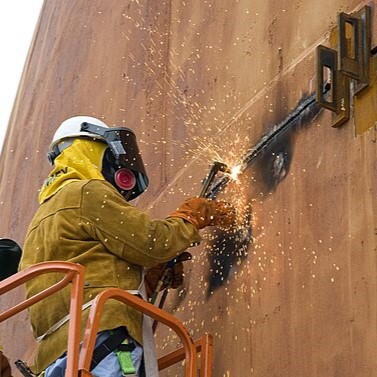Two Funded Doctoral Positions: Project on Nuclear Decommissioning
The Rachel Carson Center for Environment and Society (RCC) at Ludwig Maximilian University Munich is offering two doctoral positions in the five-year research initiative “(Dis)Empowered Communities: A Comparative Study of Decommissioning Nuclear Sites” that aims to document and unravel the socioecological and economic implications of nuclear decommissioning projects and the efforts of local host communities to imagine and construct post-decommissioning redevelopment scenarios.
The positions will start 1 April 2026 and are offered for three years. Remuneration will be at 65 percent of regular working hours in accordance with pay group E13 of the German collective bargaining agreement in the public sector (TV-L) and depending on personal and pay scale requirements. The research and dissertation will be supervised by Dr. Davide Orsini, principal investigator of the project, at LMU Munich.
The project consists of a comparative study of decommissioning experiences in four countries: Belgium, Germany, Italy, and United States. Drawing on ethnographic, historical, and policy-analysis methods, the research team will conduct fieldwork at selected nuclear sites to understand how decommissioning experts, workers, and local communities interact while planning, executing, and responding to decommissioning operations. At the same time, the study seeks to understand how collective memories, environmental conditions, and technical characteristics of selected nuclear sites influence decommissioning choices and outcomes. As part of the new Change! funding scheme of the Volkswagen Foundation, “(Dis)Empowered Communities” is a collaborative research initiative of academic and nonacademic partners: the Rachel Carson Center for Environment and Society (leading institution), the US-based nonprofit organization Nuclear Decommissioning Collaborative, and Büchnerfilm Produktion. Besides classic academic outputs, such as scientific publications and conference presentations, the project relies on public outreach initiatives and transformative research practices to foster local communities’ inclusion and active involvement through open workshops, policy reports, open-access audiovisual archive, and the making of a documentary.
During the first year of the position, PhD candidates will be offered training at the Rachel Carson Center under the supervision of Dr. Davide Orsini and will conduct preliminary fieldwork and archival research. In their second year, PhD candidates will conduct fieldwork —one in Belgium and one in Germany—and archival research. Funds for such activities are already available, but candidates will be encouraged to apply for external funding as part of their professionalization process. The third year will be devoted to writing their dissertations. Throughout their research experience the doctoral candidates will take part in a variety of activities such as filmmaking and documentary production, the elaboration of policy recommendations and briefings, and the organization of public events with members of the civil society, policymakers, and host nuclear communities. They will acquire skills that can be used both within academia—if they decide to continue along this path—and for other professional plans, such as consulting, or research positions within state agencies.
We will consider applicants who propose to do fieldwork in communities that they may already know as long as the site has the required criteria to be comparable with the others: firstly, there must be a planned or ongoing decommissioning project; and secondly, the sites must be either in Germany or in Belgium. If you are unsure, please get in touch to discuss (davide.orsini@rcc.lmu.de).
Required Qualifications
- MA in anthropology, history, geography, cultural studies, or a related discipline;
- Fluency in English, with strong English writing skills;
- Proficiency in a relevant local language (German for those willing to conduct research in Germany; French for Belgium; Flemish is desirable for Belgium but not indispensable);
- Ability to work well in a team;
- Commitment to conduct 12 months of fieldwork, as well as shorter follow-up visits (funds for travel and field expenses are available).
Preferred Qualifications
- Experience conducting ethnographic fieldwork and archival research;
- Experience conducting video ethnography;
- Background in history, anthropology, geography, or cultural studies.
Inquiries prior to the application deadline can be directed to davide.orsini@rcc.lmu.de.
To apply, please submit your application, including the following documents compiled into a single PDF file, to jobs@rcc.lmu.de by 30 November 2025:
- A cover letter/letter of motivation (max. 2 pages), including a statement about current and past research interests, and how they may be relevant to the project;
- A short CV (max. 2 pages);
- Copies of university degree(s);
- A writing-sample (max. 20 pages), such as a master’s thesis or other single-authored text (term paper, peer-reviewed article, book chapter, etc.);
- Contact information of two references who can write recommendation letters in case of admission to the interview stage.
Interviews will take place between 15–18 December 2025 via Zoom. We welcome applications from qualified individuals with disabilities, people of diverse backgrounds, and gender identities. We are particularly interested in candidates from the communities or regions envisioned in this study. We may also be able to support individual doctoral projects related to the research described above through applications to separate funding mechanisms. Please email us to discuss.
The RCC is the largest center for advanced study in the environmental humanities in the world and hosts numerous international scholars. Its working language is English. The RCC offers an attractive compensation package, based on the tariff contracts for public service (65 percent of level E13, commensurate with experience) and 30 days of paid vacation. Working hours are flexible, and the RCC offers a family-friendly working environment. The RCC may also assist, if necessary, with work permits and visas. As the candidate will be a state employee, they are required to have German health insurance and make contributions to the German tax and social welfare system.


